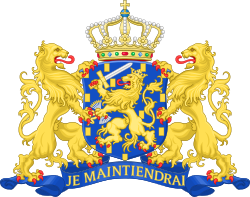Human trafficking
Human trafficking is a widely recognised problem. The Netherlands is listed by the UNODC as a top destination for victims of human trafficking. [7]
In the Netherlands, it is estimated that there are from 1,000 to 7,000 trafficking victims a year. Most police investigations relate to legal sex businesses, with all sectors of prostitution being well represented, but with window brothels being particularly overrepresented. [8] [9] [10] In 2008, there were 809 registered trafficking victims, 763 were women and at least 60 percent of them were forced to work in the sex industry. All victims from Hungary were female and were forced into prostitution. [11] [12] Out of all Amsterdam's 8,000 to 11,000 prostitutes, more than 75% are from Eastern Europe, Africa and Asia, according to a former prostitute who produced a report about the sex trade in Amsterdam, in 2008. [13] An article in Le Monde in 1997 found that 80% of prostitutes in the Netherlands were foreigners, and 70% had no immigration papers, [14] [15] though E.U. citizens need no paperwork other than valid identification, under the E.U's freedom of movement of goods, labor and persons policies.
In 2000, the Netherlands established the Dutch National Rapporteur on Trafficking in Human Beings and Sexual Violence against Children to report on the progress of the Dutch Government in combating human trafficking, which produced its first report in 2002. [16]
By 2017 it is estimated that more than 6000 people in the Netherlands are human trafficked each year, 4000 largely local women for sexual slavery and abuse, and 2000 largely foreign men for work by organized crime groups. [17] Each year 1320 Dutch minor girls are being trafficked for sexual slavery and abuse. [3]
